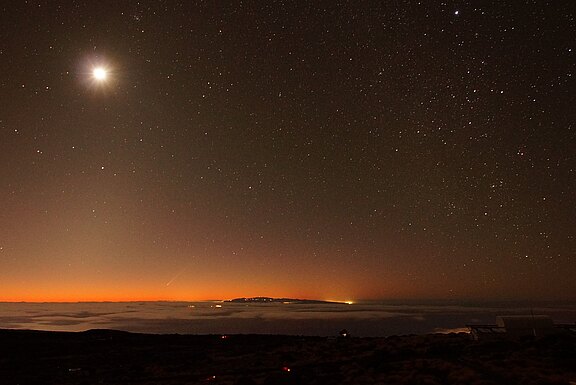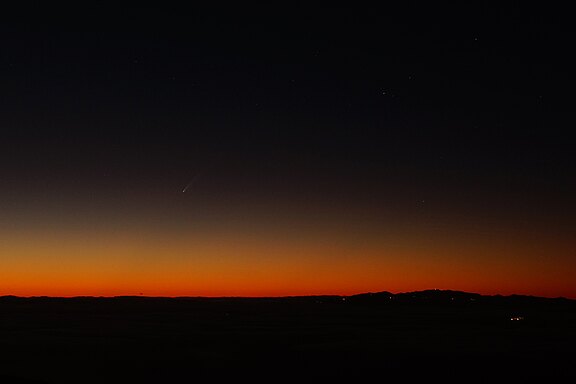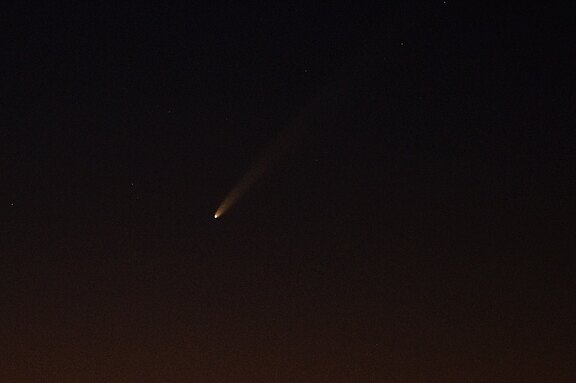Solar Observatory at Schauinsland
Public Tours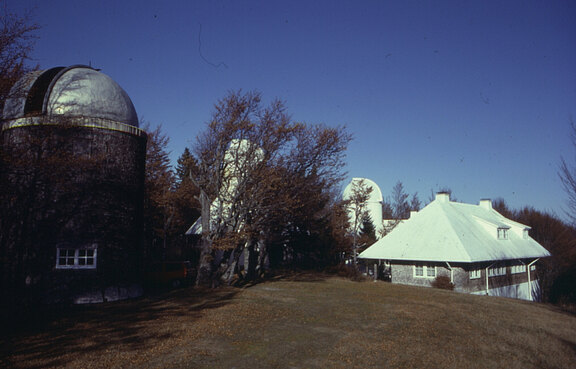
The Schauinsland Observatory was the breeding ground of the Institute of Solar Physics (KIS). Erected during WW2, it hosted the early institute until the 1950s. The observatory is located at an altitude of 1200 m east of the Schauinsland summit in the Hofsgrund district, about a 45-minute drive from the center of Freiburg. The observatory has a solar tower telescope with a 45 cm opening and a Littrow spectrograph, as well as a Maksutov telescope with a 35 cm opening for star observation. Due to the weather conditions, around 100 observation days per year can be used for observations at Schauinsland.
Scientific observations at Schauinsland took place until the 1980s. Since then, research has concentrated on the Tenerife observatory while the Schauinsland observatory has been used intensively for student training in physics in cooperation with the University of Freiburg and for public outreach.
Tag der offenen Tür am 1. August zur VAG-Nachtfahrt der Schauinslandbahn
Zur diesjährigen VAG-Nachtfahrt am Freitag, den 1. August, organisieren wir zusammen mit den Sternfreunden Breisgau e.V. einen Tag der Offenen Tür im Observatorium auf dem Schauinsland.
| Zeit | Programmpunkt | Ort |
| 15:00 – 18:00 | Mobiles Sonnenteleskop | Sonnenterasse an der Bergstation |
| 17:00 & 18:00 Uhr | Führungen im Sonnenobservatorium Schauinsland (KIS) und in der benachbarten Vereinssternwarte (SFB) | Treffpunk: Observatorium |
| 19:00 | Vortrag: Die aktive Sonne – Von Sonnenflecken zu Polarlichtern Dr. Rolf Schlichenmaier (Institut für Sonnenphysik) | Vortragsraum Sonnenobservatorium |
| 20:00 | Vortrag: Meteorite Gundo Klebsattel (Sternfreunde Breisgau e.V.) | Vortragsraum Sonnenobservatorium |
| ab 21:00 | Himmelsbeobachtung | Rotlache (Nähe Bergstation) |
Teilnahme ist kostenlos. Kontakt: Rolf Schlichenmaier (schliche@leibniz-kis.de)
Open-hous day (Türöffnertag - Maustag)
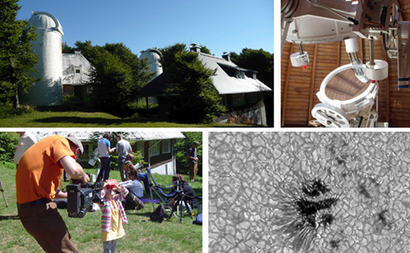
Each year, on 3 October, the Sendung mit der Maus has its door-opening day. We also open the doors to you at the solar observatory on the Schauinsland mountain near Freiburg.
Of course, it's more fun when the weather is good. But then, even we solar physicists sometimes travel to a solar telescope just to find ourselves surrounded by clouds. Don't let that discourage you from visiting us anyway; you will enjoy it nevertheless. Depending on the weather, you will learn about topics such as:
- What is the sun, how big is it, and how far is it from the earth?
- How can we observe the sun and what can we actually see on it?
- How does a rainbow form, what do the colours in the light of the sun and the stars tell us?
- We'll take you through a (large) telescope (our telescope is so big you can walk around in it).
- What does one do at a solar observatory and why can't one observe the sun with all telescopes?
- How does a telescope work?
We can guide four tours, consisting of up to 10 children and their escorts. The tours start at 10:00, 11:00, 12:00 and 13:00 and last about an hour each.
Suppose you're enough English speaking people to make up an entire group. In that case, we are happy to offer tours in English but regretfully we cannot do mixed-language presentations. Please register early!
Please register and send further enquiries to: maustag@~@leibniz-kis.de
Weather:
As mentioned above, our plan is to experiment with sunlight and, for example, create an artificial rainbow and demonstrate a large telescope. Still, even if it is cloudy or raining, we can show you the telescope and explain many exciting things about the sun. So the event will take place even if the sun is not shining.
We look forward to your visit!
